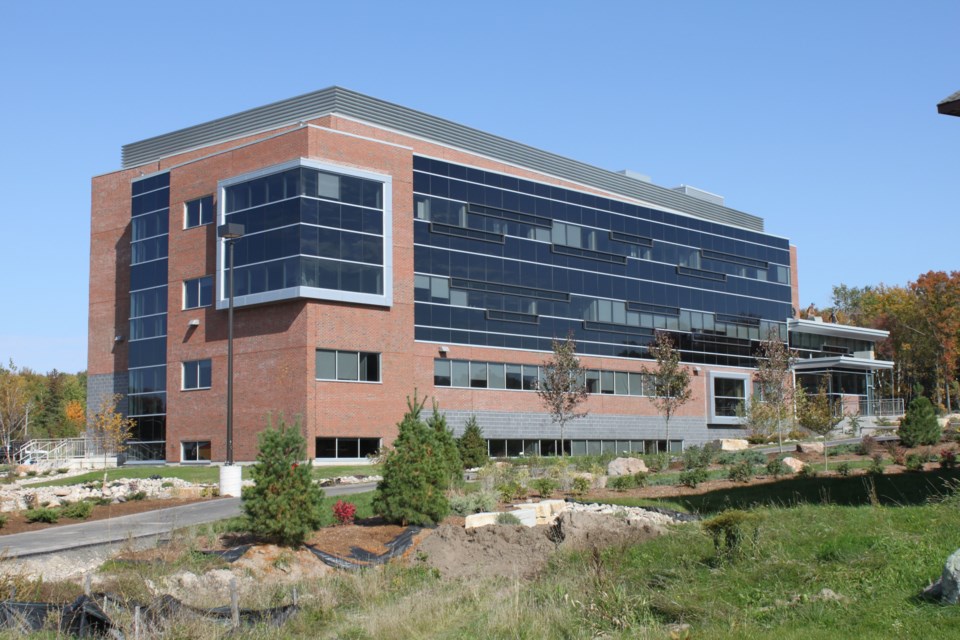It was 10 years ago this week that Heliene opened its solar panel manufacturing plant in the west end of Sault Ste. Marie.
Since then, said president Martin Pochtaruk, Heliene has innovated new technologies, opened a second manufacturing location in Minnesota, and paid out more than $24 million in wages, which, factoring in Statistics Canada’s multiplier effect, translates into more than $36 million in direct economic development for the region.
But the last decade hasn’t come without its hurdles.
“This all sounds like good news,” Pochtaruk said during an Oct. 15 online call. “However, as a business into clean-tech in a highly competitive environment, there's always challenges.”
With the bulk of his products shipping to customers in the U.S., Pochtaruk said his business has struggled following the dismantling of the North American Free Trade Agreement (NAFTA) in 2018. (It has now been replaced by the United States-Mexico-Canada agreement which was ratified in March.)
Paying anywhere from 20 per cent to 30 per cent anti-dumping and import duties to bring his products into the U.S. has “crippled” his ability to grow the company the way he envisions, Pochtaruk said.
Yet he pushes on.
“When you are hard-headed, there is no challenge that is big enough, and we continue to manufacture in Sault Ste. Marie and export to the U.S. even when paying 20 per cent import taxes to access that market,” he said.
Want to read more stories about business in the North? Subscribe to our newsletter.
FedNor has heard his pleas and has allocated $400,000 to help the manufacturer keep its competitive advantage.
Pochtaruk said the funds will be used to expand Heliene’s production and office space by 4,000 square feet, build a new high-voltage testing lab to aid in product research and development, and install a new HVAC system.
The expansion will bring the facility to a “best-in-class” level, enabling it to better develop and commercialize new products, he noted.
Relief for Heliene was one of five projects earmarked for more than $2.6 million announced by Sault Ste. Marie MP Terry Sheehan and FedNor director-general Aime Dimatteo on Oct. 15.
Sheehan noted the funding comes just in time for Small Business Week, being observed Oct. 18 to 24, and applauded small businesses for their courage and ability to adapt despite the uncertainty facing many because of COVID-19.
“It is their resilience and ingenuity that are going to be the absolute key to Canada's economic recovery,” he said.
As the recipient of the bulk of the funding, the Sault Ste. Marie Innovation Centre (SSMIC) will use its $1.9 million for three projects, which director Peter Bruijns said would “help us continue to build up our economy by helping our regional businesses in agri-tech and technology accelerate their growth and create jobs.”
Of the funds, $745,000 will go toward the Innovation Accelerator Program, which will help businesses in the Sault and Algoma innovate, commercialize, and boost their management and trade capacity.
Another $660,000 will go into the Business Technology Improvement Fund to help local businesses adopt digital technology and e-commerce solutions.
A final $498,000 will provide farmers and agri-food producers with emergency COVID-19 response funding, helping them adapt to new market requirements, through the Sustainable New Agri-Food Products and Productivity Program.
Sault College received the final piece of funding totalling $378,000.
The school will hire an industry liaison coordinator and pre-commercial research technician to develop collaborative projects with industry that are focused on automation and advanced manufacturing, robotics and information and communications technology (ICT).
“These new resources, combined with our extensive robotics and automation facilities and the launch of our very exciting recently announced engineering degree program, will make Sault College a top-tier knowledge hub for advanced manufacturing,” said Dr. Ron Common, Sault College’s long-time president, during the call.
Launched in 2010, the college’s applied research centre provides technical expertise, specialized equipment, and access to project funding to help small and medium-sized enterprises innovate and commercialize their products, Common noted.
Applied research projects also provide students with invaluable hands-on learning experiences, he added.
“As a result, our students benefit through the development of advanced skills and add to the roster of highly qualified personnel in our community who can support existing companies and make Sault Ste. Marie more attractive to prospective companies who are looking to locate here,” Common said.




